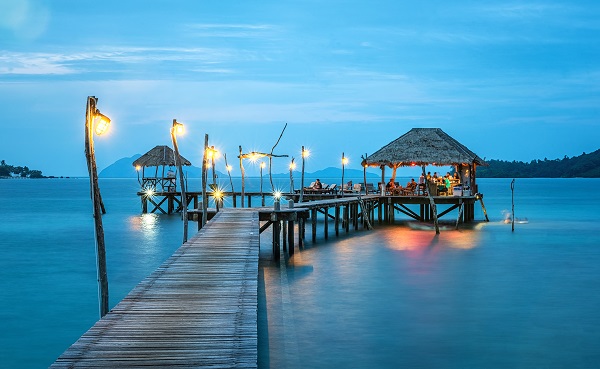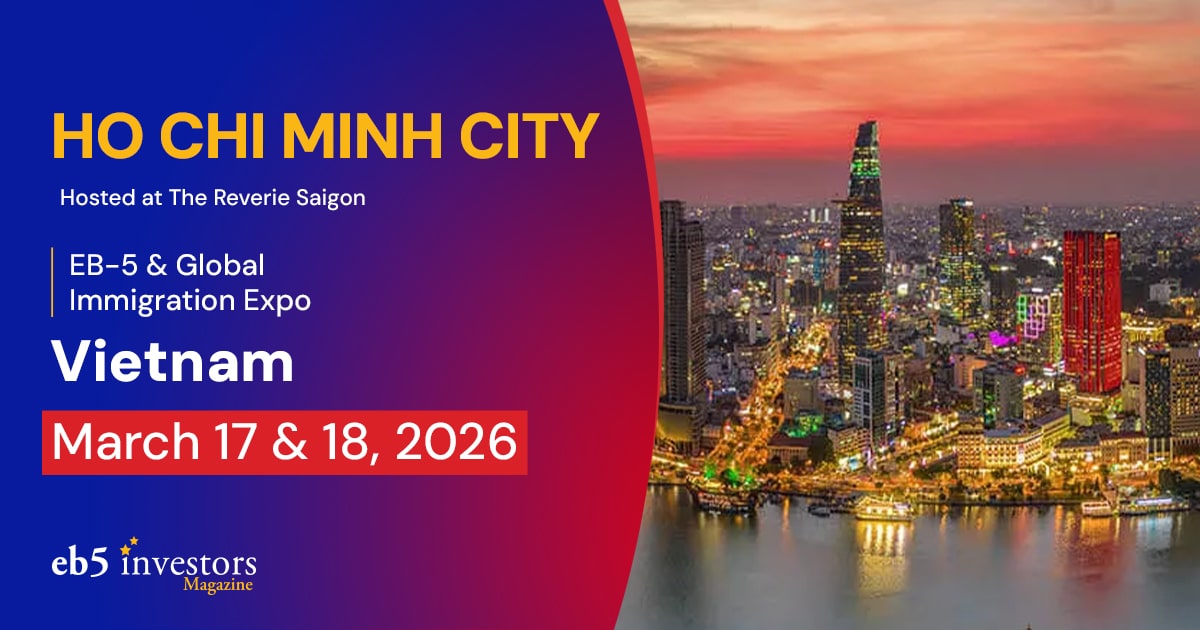
By EB5 Investors Magazine Staff
It’s barely a speck in the Caribbean Sea, but the island nation of Dominica has an outsize reputation among citizenship-by-investment programs.
Dominica’s longtime program is respected for its low price tag, quick and easy processing, due diligence, and strong network of agents.
The Dominica citizenship-by-investment program ranked highest against 12 other countries, according to a study published by Financial Times’ Professional Wealth Management.
“It’s an experienced and efficient program, which offers great visa-free travel and opportunities for wealth preservation and asset protection,” said Anatoly Letaev, founder of Migronis Citizenship. “It’s a good passport program for those investors who are not looking for relocation to the Caribbean.”
Dominica’s effort to strengthen its citizenship-by-investment program in recent years is expected to put the country in good stead as it tries to attract investment to rebuild after taking a direct hit from Hurricane Maria in September.
Just as after Tropical Storm Erika in 2015, Dominica will need the money from its citizenship-by-investment program to restore what was known as the “Nature Island”: rainforests filled with parrots and wild orchids, waters swimming with tropical sea horses and turtles, and markets overflowing with guava and fresh seafood.
“We have lost all that money can buy,” Prime Minister Roosevelt Skerrit said in a Facebook post after the hurricane, according to the BBC.
It’s no wonder the country, the setting for two “Pirates of the Caribbean” movies, has ranked among the happiest places to live in the world. Not to be confused with the Dominican Republic, the island of Dominica has about 70,000 inhabitants. It was discovered by the Spanish, primarily colonized by the French, then controlled by the British for more than two centuries. English is the official language.
“The recent devastation by the Hurricane Maria means that CIP is the major source of the country’s income now, and applications are much needed to raise the funds for the re-building,” said Migronis’ Letaev. The Citizenship by Investment Unit was back to work a few days after the storm passed the region, he said.
The real estate projects funded by the program — Range Developments’ Cabrits Resort Kempinski and Jungle Bay Villas — were spared the worst hurricane damage and will resume construction as soon as possible, he said.
Dominica is sort of the old-school option in the Caribbean, said Andrew Henderson, founder of Nomad Capitalist. The program, launched in 1993, was the least expensive for a while, but St. Lucia has tied it on that front. And other countries have added visa-free travel to the Schengen area, so Dominica no longer has such an edge on that front.
But the program has a track record of stability in how it has performed and how passports have been renewed, which newer programs such as St. Lucia’s don’t, he said. For a U.S. citizen looking to renounce or a Chinese or Russian individual who just wants to travel, Dominica could be a good fit, he says.
“They’re the steady rock. They’re the one that’s really been there. It’s improved, while St. Kitts has dropped a little bit,” Henderson said.
“The price makes it number one,” he said. Other programs aren’t justified charging double or triple the amount or in some of their restrictions, he added. “I think you’re seeing more players trying to justify their entry and Dominica just keeps it simple.”
Dominica’s program appeals to three categories of investor, said James Bowling, chief executive of Monarch & Co.:
1. The traveler: Dominican citizenship offers visa-free travel to more than 120 countries.
2. The savvy business person: Dominica offers minimal taxation. Citizens are liable for personal tax only if they reside in the country permanently. Aside from holding double taxation agreements with a number of countries, there is also no restriction on the repatriation of profits and imported capital. Dominica has provided corporate tax incentives, generous tax holidays, exemption from import duties, tax relief benefits and export allowances. With a Dominican passport/citizenship, local residence (title deed) and fiscal tax number, high net-worth business people can use their new citizenship to open international bank accounts and businesses and benefit from their acquired Dominican tax advantages, Bowling said.
3. The emigrant/entrepreneur: Dominica is a member of the Organization of Eastern Caribbean States, which includes Anguilla, Antigua and Barbuda, Grenada, Montserrat, St. Kitts and Nevis, St. Lucia, St. Vincent, the Grenadines, and the British Virgin Islands. A citizen of any of these countries can enjoy free movement within them for indefinite periods of time to work, establish a business, provide services or reside.
The Dominica program offers two paths to citizenship: a onetime contribution into the Economic Diversification Fund or an investment in eligible real estate projects.
Funds transferred to the EDF have been instrumental in Dominica’s national development, particularly to reconstruct key infrastructure and public buildings, as well as finance its offshore and agricultural sectors.
The EDF option requires a single applicant to contribute $100,000, which rises to $175,000 if a spouse is added and to $200,000 if up to three qualifying dependents are added. A fee of $1,000 per application is charged.
Funds go to public- and private-sector projects where a need is identified. Public-sector projects include building schools, renovating the hospital, building a national sports stadium and promoting the offshore sector. Private-sector projects emphasize tourism, information technology and agriculture.
The environment is of key importance to the government, which is heavily investing in eco-tourism and clean energy, according to the Financial Times CBI report.
The real estate option requires at least $200,000. The property must be held for three years and is eligible for re-sale after five years from the grant of citizenship. Two or more applicants can invest together, as long as each contributes the minimum $200,000.
Investment is in tourism projects. In the mid-1990s, the country suspended its citizenship-by-investment program after problems with one resort development. But the country has since put in place a review committee and a stronger legal framework after losing visa-free access to Canada in 1999, according to statements by Vince Henderson, Dominica’s permanent representative to the United Nations, and Emmanuel Nanthan, who heads the country’s Citizenship by Investment Unit, in a 2015 interview with HuffPost News.
Funds are put into a government escrow account to monitor spending, they said. Prospective developers must have equity in their projects, and the project must create local employment during construction and operation.
The following fees, recently reduced until September 2018, also apply: $25,000 for the main applicant; $35,000 for the main applicant and spouse or the main applicant and up to three dependents; or $50,000 for a family of up to six.
Both options carry due diligence fees of $7,500 for a single applicant, which rises when family members are added, a fee of $250 per person for certificates of naturalization and an expedited passport issue fee of $1,200 per person. Some fees are reduced until March 2018.
Dependents can include children under 18 (or under 30 if the child is a full-time student and fully supported by the main applicant) of the main applicant or spouse; an unmarried daughter of the main applicant up to 30 living with and fully supported by the main applicant; a child of the main applicant or spouse over 18 and physically or mentally challenged and fully supported by the applicant; and parents or grandparents of the main applicant or spouse over 55 living with and fully supported by the main applicant.
Benefits include:
- Visa-free travel to around 120 countries, including Singapore, Hong Kong, and the UK and other Commonwealth countries, and allows 10-year visas to the U.S. and Canada
- Ability to live in any member nation of CARICOM, though a visa is required to enter the United States, as Dominica is not a member of the Visa Waiver Program
- No wealth, gift, inheritance, foreign income or capital gains tax
- Full residence status, with the right to live and work in Dominica
- Dual citizenship allowed
- No requirement to reside in Dominica before or after citizenship is granted
- Confidential application process (though names of those who receive economic citizenship are published in the country’s official Gazette to discourage corruption)
Applicants must have a clean criminal record and prove they are of good character. Applicants also don’t need to learn English or show a history of education or business experience. The country claims a 2 percent rejection rate, for which it credits the due diligence and experience of its agent network, which screens all applications.
By regulation, the CBIU must respond to an application within three months of its submission. Application processing takes 45 to 60 days. There are no interview or travel requirements.
The program does not impose any restriction based on the applicant’s nationality. This makes it appealing to citizens of countries including Iran, Iraq and Yemen — countries sanction-listed by other citizenship-by-investment programs.
The program was reworked in 2014 to tighten regulation processes, enabling stringent review of applicants.
Drawbacks include lack of an E-2 Treaty agreement with the U.S. (as Grenada has) so Dominica can’t offer its citizens the opportunity to live and work in the United States.
Dominica is also not easily accessed by air, impacting its tourism industry, which is vital for the real estate developments dependent on citizenship-by-investment funds.
“The big restraining factor for Dominica real estate developments is the absence of the direct flights from the U.S. and UK, which are the major hubs on the way to the Caribbean,” said Migronis’ Letaev. So, in terms of real estate, Dominica is not a real competitor to more developed islands, such as Antigua or Grenada, he added.
A disadvantage of all the Caribbean programs is that none offer the education, health and lifestyle qualities of the EU countries, said Monarch’s Bowling. Also, despite some being previously colonized by EU nations, they have no privileges in the EU. They cannot study, work or live in the EU as easily as EU citizens can, which is a deterrent to families thinking of their children’s futures, he said.
Dominica also does not have access to all of South America, with no visa-free travel to Argentina or Chile, said Nomad’s Henderson.
DISCLAIMER: The views expressed in this article are solely the views of the author and do not necessarily represent the views of the publisher, its employees. or its affiliates. The information found on this website is intended to be general information; it is not legal or financial advice. Specific legal or financial advice can only be given by a licensed professional with full knowledge of all the facts and circumstances of your particular situation. You should seek consultation with legal, immigration, and financial experts prior to participating in the EB-5 program Posting a question on this website does not create an attorney-client relationship. All questions you post will be available to the public; do not include confidential information in your question.








